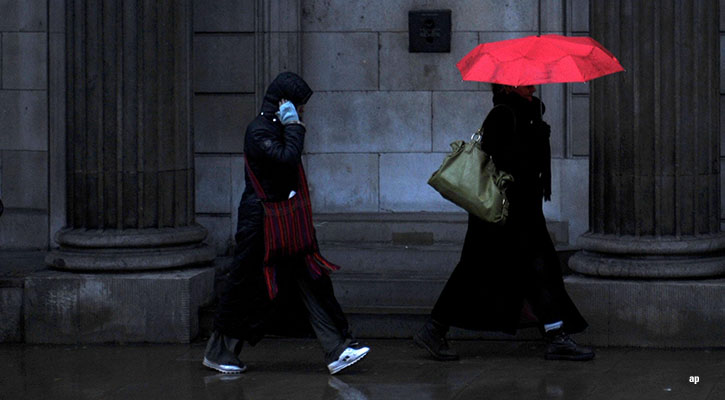The question for investors at the end of this week is how long the relief rally will last. Not surprisingly, the market bounced upwards on the news that Scotland had decisively voted to stay in the Union – with Standard Life (SL.) Lloyds (LLOY) and Royal Bank of Scotland (RBS) posting some of the earliest gains.
Markets have struggled to make headway in recent weeks, while polling remained neck-and-neck. It’s well known that the one things market hate above all other is uncertainty – and this negativity has affected more than just Scottish listed businesses.
The strength of this bounce shows just how worried the City was about a split and the potential costly effect it could have on businesses both side of the border. But as analysts have pointed out, with little other corporate or economic news due on Friday, it will be interesting to see how sustainable this rally will be.
Shares such as Royal Bank of Scotland and Lloyds have other problems beyond the constitutional status of the constituent parts of the United Kingdom and are likely to be subject to further volatility in the months ahead.
And while the market may use this rally to push itself to new heights, I think it’s more likely that other concerns, that have taken a backseat until now, will be come to the fore. A general election is looming and with it the very real prospect of a UK-wide referendum on EU Membership. This could have far wider economic consequences for companies in the UK. If nothing else the recent events in Scotland will have demonstrated how unpredictable and close run a general in/out referendum can be.
Can Alibaba Buck the Big Float Trend?
While UK investors’ eyes have been focused northwards, those in the US have been looking East. Today Alibaba (BABA) – sometimes dubbed ‘the Chinese eBay’ – starts trading on the New York Stock Exchange in what is expected to be the largest IPO ever.
The founder of the company Jack Ma, set the price of its shares on Thursday at $68 - the top end of its range. This will give the company Alibaba a stock market valuation of $167.7 billion. This makes it worth more than Amazon (AMZN) and Ebay (EBAY) and only fractionally behind the current valuation of Facebook (FB) - £197.8 billion.
If these statistics aren’t mind-boggling enough, it’s worth remembering that IPOs in the US have raised $40.5 billion so far this year. Alibaba’s float should single-handedly push this figure up by a further £25 billion. This makes 2014 a very lucrative year for IPOs. But this does lead to a rather ominous comparison: the last time as much money was raised was 2000, the year that tech-market boom turned to bust.
So what does the Alibaba float say about the health of the corporate market?
Many advisers are comparing it to Facebook, which seems to float at quite ludicrous valuations, giving its profitability at the time.
For investors who are comfortable buying US-listed stocks this may make in a more attractive prospect than other recent tech launches, which have primarily been in the social media field, where users aren’t a problem, but monetising them is.
But whatever the merits of the company itself remember the big launches tend to get over-hyped, which can mean a bumpy ride for private investors. Prior to Alibaba’s launch the five biggest US IPOs were Visa (V), General Motors (GM), Facebook, AT&T (T) and Enel Spa (ENEL). Of these, just Visa’s share price was up on its launch price one year on.
Profits Brewing in the Beer Market
Further consolidation in the market looks likely with UK-list SABMiller’s (SAB) at the centre of the action.
The company - which owns the Peroni, Miller Lite and Fosters brands - has itself made a preliminary bid for Heineken (HEIA). This was rejected by the Dutch brewing giant, on the ground that it wants to “preserve its heritage and identity… as an independent company”.
But the Heineken family retains just a 26% stake in the business, so they could come under pressure from other shareholders to pursue further talks.
There is also speculation that if talks don’t progress, then SAB itself could be a takeover target.
The Wall Street Journal reported that Anheuser-Busch InBev (ABI) is in talks to raise roughly $122 billion to buy SAB.
Clearly this consolidation would indicate these large companies are struggling to grow organically - after considerable expansion into Latin America and South America in recent years.
But there are considerable cost savings to be made from such merger and acquisitions, which should be able to deliver value for money for shareholders, in terms of share price and dividend.
Guest columnist Emma Simon is a financial journalist, specialising in investment and consumer issues
Rodney Hobson is away































